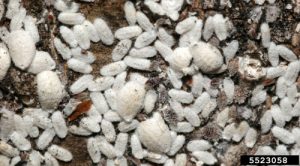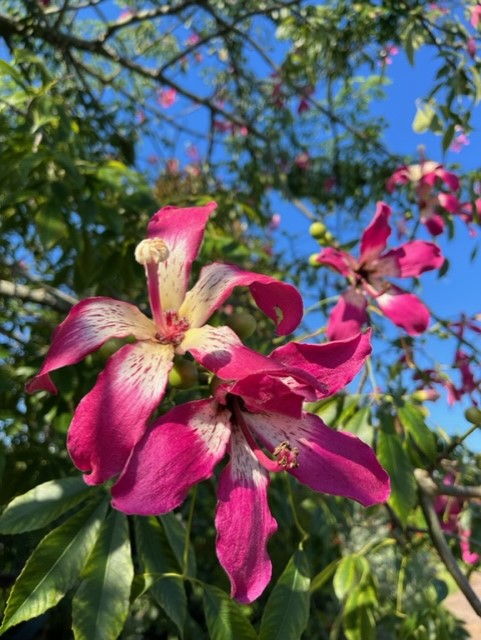
The Silk Floss Tree commands attention in every season. From a stunning floral display, to the trunk laden with menacing spines, to the palmate foliage, it is no wonder this rainforest tree has found a place in managed landscapes around the world!
Silk Floss, Floss Silk, palo borracho aka drunken stick, toborochi are all names describing the same fabulous tree scientifically known as Ceiba speciosa. A member of the Malvaceae family, the Floss Silk flowers are as showy as their botanical cousins’, the hibiscus. Other notable relatives include the rainforest giant, the Kapok tree aka Ceiba pentandra, and the Baobab aka Adansonia sp.. The family features are noticeable from root to trunk to flower, but in a combination unique only to C. speciosa.
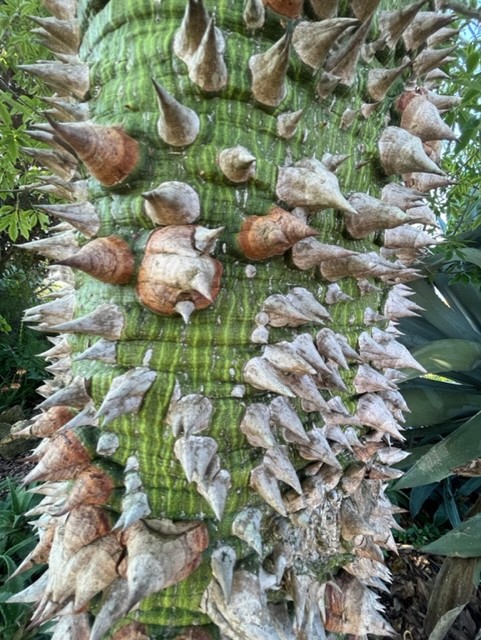
The Silk Floss is a deciduous native tree to South American rainforests and stands out among a sea of trees when it’s canopy gets completely covered with large, pink flowers. Here in Florida, expect flowers in the Fall in zones 9B-11. Silk Floss is equally as noticeable from the ground because there is no other trunk quite like it. The sharp spines cover the trunk, especially during the juvenile stage, which helps to prevent critters from scampering up the green, photosynthetically active, trunk. Evolutionarily, those spines are more of a relic of the plants’ defenses to now extinct megafauna. As the tree matures, spines may become less abundant, and the green trunk may turn gray. Some trees have a straight trunk with a narrow crown, while others may have a bottle shaped trunk with a wider spreading crown reaching heights up to 50 feet. The roots are shallow and can get big, an impressive rainforest adaptation, so in landscapes it is not recommended to plant within 15 feet of sidewalks or foundations. Furthermore, it is recommended to prune the tree to have one central leader. The tree will typically form a nice branching structure, but if upright limbs are noticed, prune them so they do not get embedded causing weak tree structure. A good pruning rule of thumb is to prune major limbs so they remain half the diameter of the trunk.
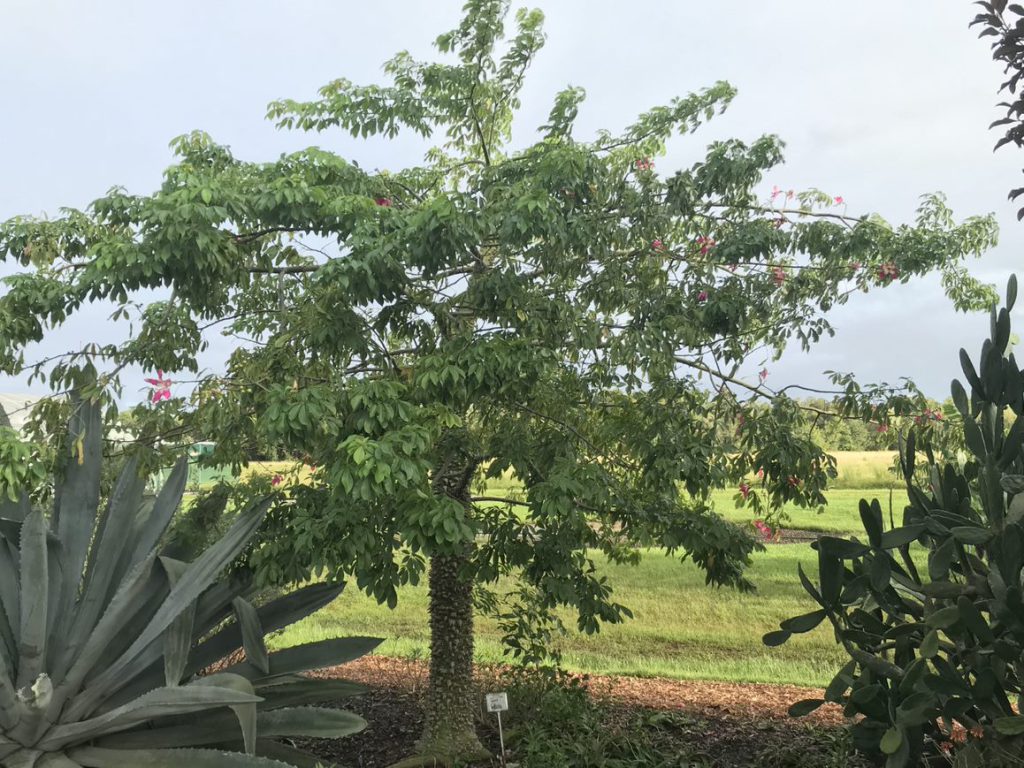
The trees do fine on decently fertile soil as long as it is well drained. The tree is well adapted to both wet and dry spells. While the tree is not salt tolerant, it can deal with a higher pH soil.
In its native habitat, hummingbirds are a common pollinator. Birds, butterflies, and bees find food in the flowers, too!
Finally, the Floss Silk tree is more than flowery! The fruits that form are full of fluffy silk-like hydrophobic fibers. The water-resistant and buoyant quality makes floss silk ideal for stuffing life jackets. It has also been used to stuff pillows and car upholstery. Floss silk from Ceiba can provide a sustainable fiber alternative that comes from a renewable rainforest resource. An alternative to down, floss silk is breathable and hypoallergenic. It is also noted that Amerindians use the tree to make canoes with the water-resistant bark, a practice becoming less common.
Ceiba speciosa is a great example of a plant with many uses beyond its spectacular beauty in the landscape! Learning more about renewable rainforest products that can be harvested with minimal disturbance to the ecosystem could be good for planet Earth and her people.
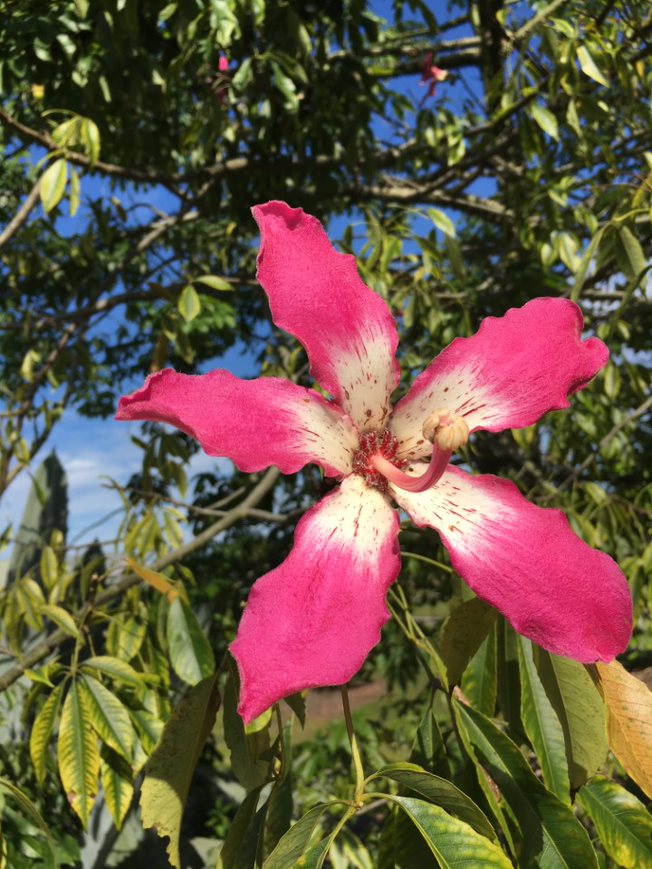
Resources
https://sites.redlands.edu/trees/species-accounts/silk-floss-tree/
https://edis.ifas.ufl.edu/publication/ST162
https://landscapeplants.oregonstate.edu/node/2137
https://trees.stanford.edu/ENCYC/CHOsp.htm
Drone video link I like: https://www.pond5.com/stock-footage/item/149698146-big-paineira-silk-floss-tree-pink-flowers-mata-atlantica-aer
http://www1.nii.res.in/pdf/Floss-silk%20tree.pdf
https://churchillandsmith.com/kapok-silk-fibers/


